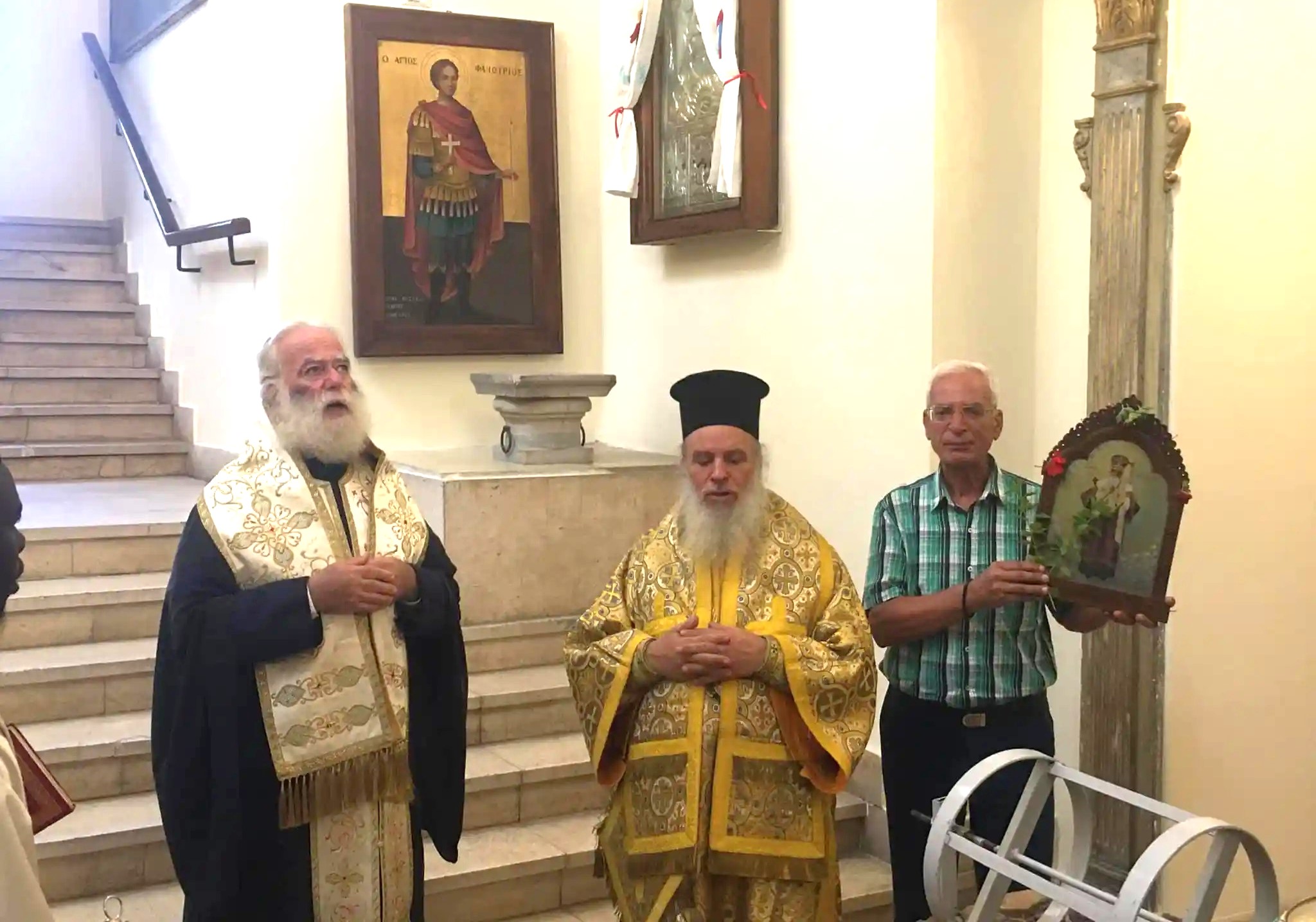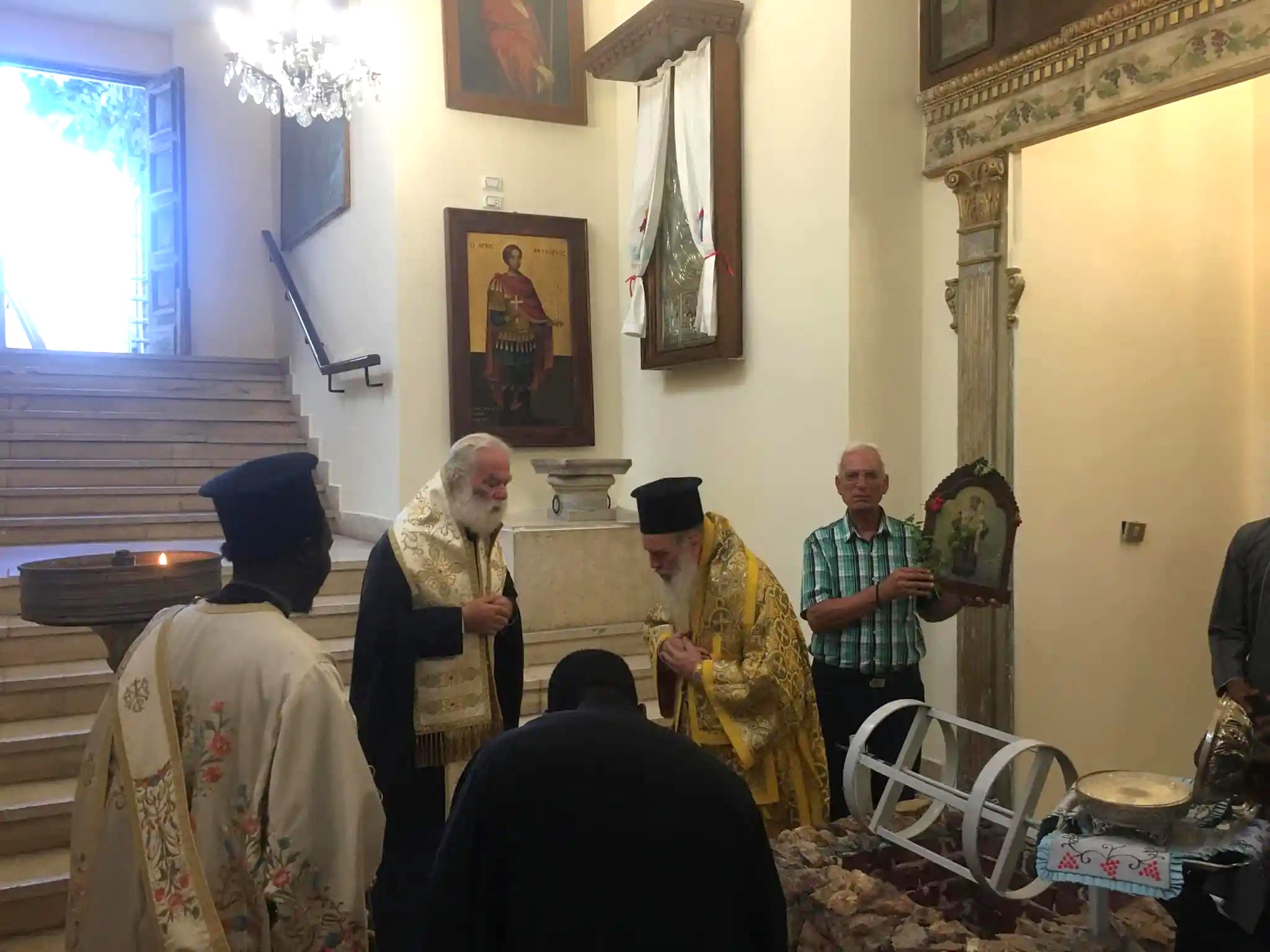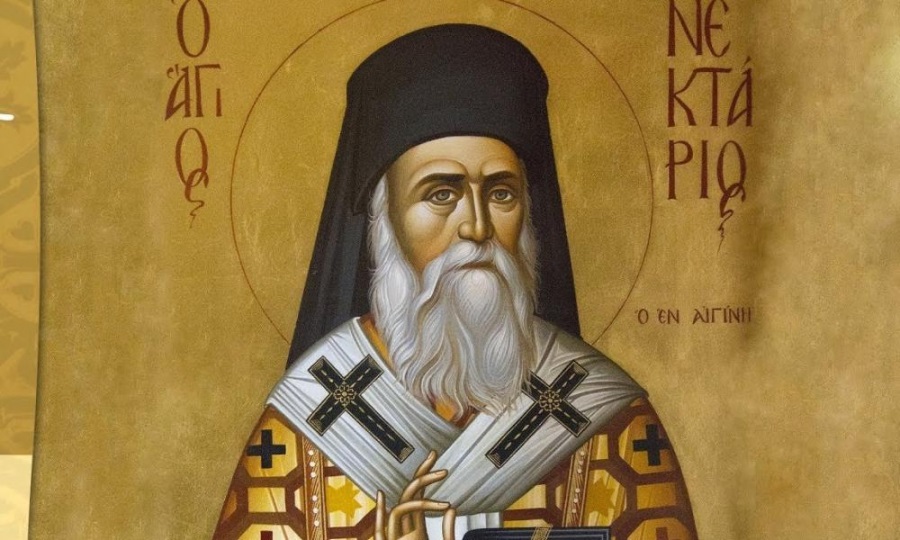The Feast of the Translation of the Relics of Saint Nektarios at the Holy Monastery of Saint Savvas in Alexandria

The Feast of the translation of the Holy Relics of Saint Nektarios of Aegina, took place with due ecclesiastical honour, splendour, respect and humility, and was presided over by His Beatitude Pope and Patriarch Theodoros II of Alexandria, at the Holy Monastery of Saint Savvas the Sanctified in Alexandria, on Tuesday, 3 September 2024, with the prayerful participation of His Eminence Metropolitan Germanos of Tamiathus, Proistamenos of the Monastery of Saint Savvas, along with African Students of the Patriarchal Theological School “Saint Athanasios” in the midst of great emotion.
Saint Nektarios, Metropolitan of Pentapolis, Egypt, was born on 1 October 1846 AD. in Silivria in Thrace and was the son of Mr. Dimos and Mrs. Vasiliki Kephalas and was the fifth of their six children. His secular name was Anastasios.
In 1881 AD he went to Athens, where at the expense of the Patriarch of Alexandria Sophronius IV (1870 – 1899 AD), he studied Theology and received his degree in 1885 AD. Then, the aforementioned Patriarch ordained him a priest in 1886 AD. and gave him the duties of secretary and Preacher of the Patriarchate of Alexandria. He was also patriarchal commissioner in Cairo.
On 15 January 1889 AD, Saint Nektarios was consecrated as Metropolitan of Pentapolis of Egypt. His activity as Metropolitan was amazing and because of this he was a main candidate for the patriarchal throne of Alexandria. However, due to envious suggestions (obscene slanders) to Patriarch Sophronius, the humble Nektarios, in order not to grieve the Elder Patriarch, returned to Greece (1889 AD).

After the death of Patriarch Sophronios of Alexandria (1899 AD), Saint Nektarios was elected to succeed him, but the Saint refused.
At the sermons which Saint Nektarios would deliver, crowds of people gathered to “taste” of the nectar of his Holy words.
In 1904 AD Saint Nektarios founded a women’s Monastery in Aegina, of which he personally took over the administration, also having fallen asleep in the Lord there in 1908 AD, after resigning from the Rizarios Ecclesiastical School of Athens.
Saint Nektarios also wrote several works, mainly aids for giving the divine sermon. His humility and charity were well known and legendary.

He fell asleep in the Lord on the afternoon of 8 November 1920 AD. Such was his holiness that he performed many miracles, both before and after his death. He was buried at the Holy Monastery of the Holy Trinity in Aegina.
The translation of the Holy relics of Saint Nektarios took place on 3 September 1953 and on 20 April 1961 by Act of the Ecumenical Patriarchate, he was proclaimed a Saint of the Orthodox Church.
Source: ekalexandria.org




